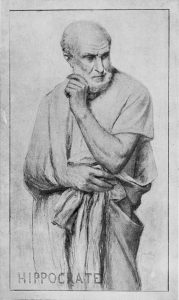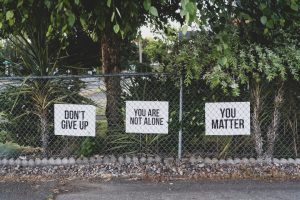chronic pain
The Devil Effect and Patients with Pain
The belief that Big Pharma is inherently bad makes it difficult to appreciate the good things (such as vaccines and cures for diseases) that come from Pharma and separate them from the bad things (such as the negative consequences of some drugs and apparent greed).
Read MoreAre We Living in the Matrix?
A recent Netflix documentary, “The Social Dilemma,” illustrates how social media networks are selling each of us as commodities to advertisers. Tristan Harris, a former Google employee, points out that platforms such as Reddit, Facebook, Twitter, and Instagram make money by allowing advertisers to target only those who are interested in their messages or products
Read MoreThe American Medical Association Takes on the CDC Opioid Guidelines
The new recommendation offered by the AMA holds to a long-held belief by many physicians with expertise in pain and addiction medicine that patients with a current, or a history of an, opioid use disorder should receive effective pain care, including opioid therapy, when clinically indicated and in consideration of known risks and benefits.
Read More“First, Do No Harm” Doesn’t Mean “Avoid Opioid Therapy”
A mischaracterization of the phrase “First, do no harm” must not prevent providers from caring for people, or prevent policymakers from allowing physicians to treat their patients. That treatment must include providing patients with medication that can adequately provide pain relief with acceptable risk.
Read MoreNew Podcast Discusses Current Issues Involving Pain and Politics
Dr. Ziegler is an advocate for people in pain. A Purdue University professor emeritus, Dr. Ziegler has also worked as a lawyer, police officer, detective, DEA agent, and humorist. I don’t know how he puts these experiences together, but I’m grateful that he is willing and able to leverage all of his skills and knowledge in a remarkable way to produce entertaining and informative podcasts.
Read MoreWhite Privilege and People in Pain
If I had been of a different race, would I have been treated with the same compassion? Research today suggests I probably would not have been.
Read MorePeaceful Protests and Prejudice
This article, in a slightly edited form, first appeared on Pain News Network on June 6, 2020. The Salt Lake Tribune recently published a story that distressed me. It said that Scott Senjo, a criminal justice associate professor at Weber State University in Utah, tweeted threats at those who were peacefully protesting the alleged murder…
Read MoreWhen Is Healthcare Noble?
What is it about certain medical conditions that results in unprecedented concern, a willingness to muster all resources, and an outpouring of selflessness from practitioners and the public alike? Why are healthcare professionals willing to risk their lives for coronavirus patients, but not their reputations to treat chronic pain?
Read MoreHow Is COVID-19 Affecting You? Please Take a Survey
These are hard times. Our emotions are intense and frayed, and often it’s helpful to share those feelings. Pain News Network, in collaboration with chronic pain advocate Barby Ingle, has published a survey you can take to share how the pandemic has affected you thus far.
Read MoreThe Victim of a Created Crisis — Left Behind
There have been just north of 68,000 overdose deaths in the United States in 2018. The largest new healthcare crisis in America.
Read More








